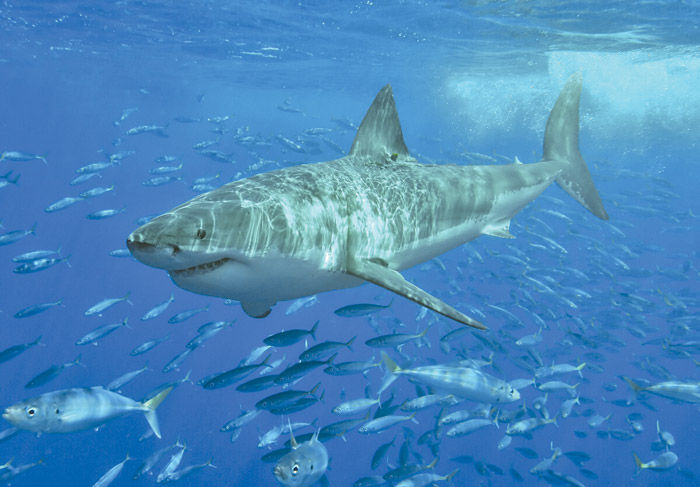Sharks have long traversed the waters of the ocean, striking fear into the hearts of innocent fish. But what prevents these apex predators from becoming disoriented in the deep ocean?
The key to sharks’ accurate navigation through long stretches of sea may lie in their noses. Sharks possess a keen sense of smell that allows them to track prey, and studies now show that this acute olfactory intuition also allows sharks to sense their way through the ocean, as reported in PLOS ONE.
Oceanographers in California designed an experiment to determine if olfactory senses played a significant role in shark routing. Andrew Nosal and colleagues captured a group of leopard sharks from their habitat near the shore and transported them about six miles away. From here, Nosal’s team stuffed some of the sharks’ noses with cotton and Vaseline, to impede their sense of smell. The sharks were released, and researchers carefully monitored their return to shore.
The results showed a very clear trend: the sharks with unhindered noses were able to sense their way towards the shore within 30 minutes, whereas the sharks with nose plugs took hours longer. The sharks lacking nasal intuition also swam in random patterns, notes Nosal.
There is evidence that other factors, such as sight and even magnetic forces, contribute to sharks’ ability to orient themselves in unfamiliar waters. However, scent seems to be a more potent factor for sharks in particular. This is evidenced by the observation of an unusually large olfactory bulb in shark brains, which aids in transmitting information from olfactory receptors to areas of higher processing in the brain. Furthermore, the researchers hypothesize that the sharks perceive acute changes in the chemical composition of water to gain a sense of location.
The ability to smell changes in the chemical gradient of the water is probably why the sharks were able to distinguish the deeper sea from the shore. It is postulated that the chemical chlorophyll A indicates a proximity to shore because it is a byproduct of rising seawater. The sharks that were able to perceive chlorophyll A knew that they were getting close to their shallow-water home.
Dissolved amino acids from plankton excretion may also inform sharks of nearby populations, helping them discern certain areas of their habitat. Nosal says that future studies will investigate the mechanism of this scent intuition,
and how nasal navigation is integrated with sharks’ other senses.









